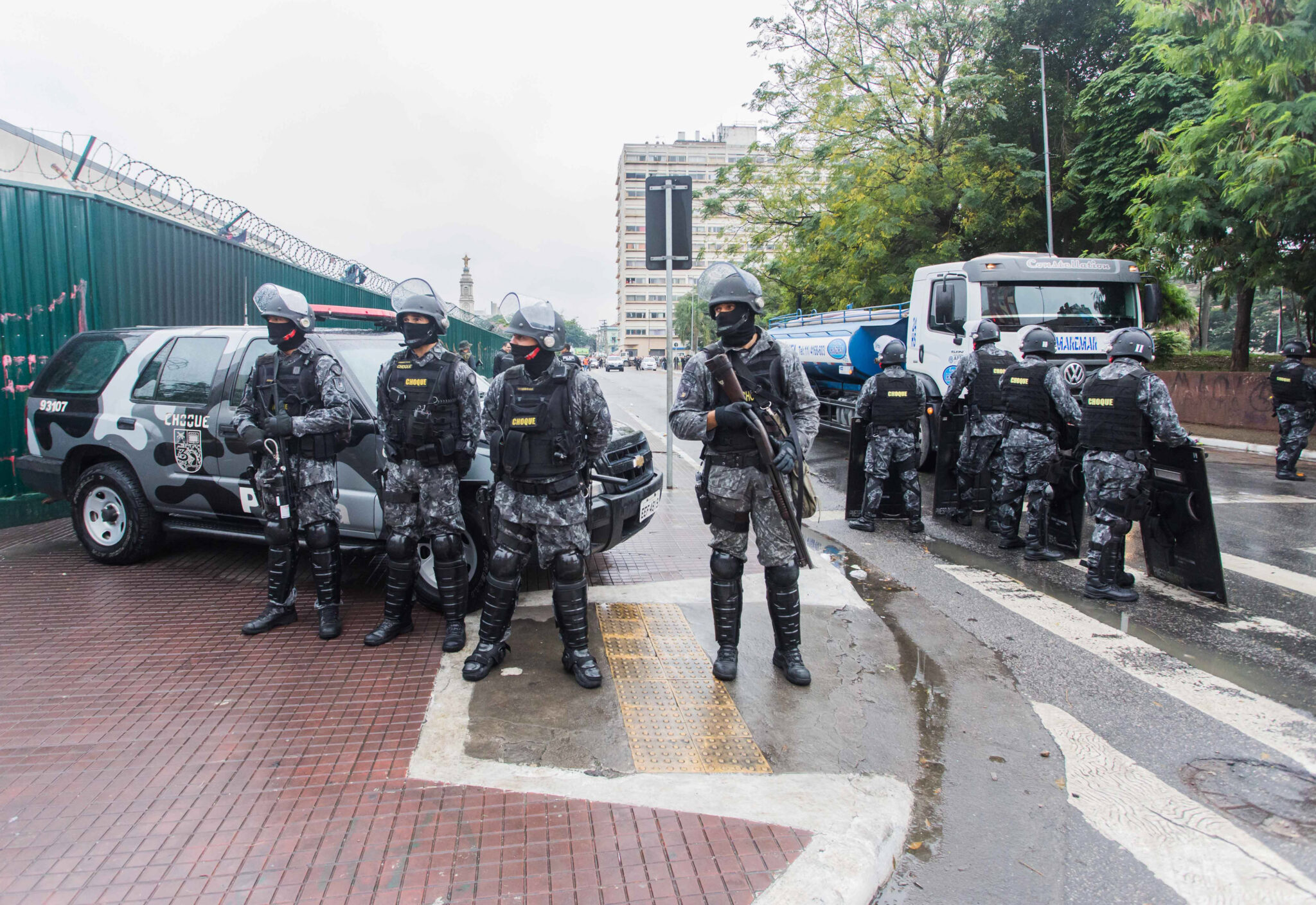On February 1 in São Paulo, a few hundred yards away from the city’s embattled Cracolândia, Governor Tarcisio Freitas inaugurated the new tactical base from which military police will surveil the area full-time.
Cracolândia can refer to any of a number of locations demonized for public drug use and homelessness. But the long-time favorite target of politicians and media is in the one at São Paulo’s city center.
The São Paulo State Military Police (PMSP) is the largest state police force in Brazil. New units are inaugurated regularly, but this one is notable because it’s essentially being operated from Cracolândia‘s doorstep. The current patrols harassing the neighborhood by foot, by car, by horseback, are not enough. Now, a new tactical base will see PMSP officers stationed there 24/7.
By the end of March, Freitas expects to have 300 officers stationed at the base.
The base is starting off with 48 officers. By the end of March, Freitas expects to have 300.
“The police’s mission … is to arrest criminals,” São Paulo Secretary of Public Security Guilherme Derrite told Metropoles in Portuguese. “However, when [the PMSP officer] goes to arrest the criminal within this open scene of [drug] use, he will come across drug addicts, homeless people.”
In an ominous sign, Freitas has additionally promised to implement a new 12-month training initiative. It is intended give the PMSP officers stationed at Cracolândia—many of whom will be relatively young and inexperienced—a basic understanding of substance use disorder and street-based homelessness. To incentivize enrollment, São Paulo will pay each officer approximately $240 USD.
With the 2024 municipal election looming, this seems sure to result in residents forcibly removed from Cracolândia and institutionalized by authorities who claim it’s for their own good. Meanwhile, real estate developers clamoring to gentrify Cracolândia are circling.
Freitas has repeatedly vowed to end Cracolândia.
During 2023, Freitas’ first year in office, reports of rising violence and theft have helped scapegoat people who use drugs and justify PMSP killing more and more people. This included “Operation Shield,” a 40-day bloodbath that left at least 28 people dead.
It was the second-deadliest massacre in Brazil’s recorded history. Authorities justified it with the all-too-familiar rhetoric of the drug war: claiming that people who sell drugs, and who therefore must have certainly been affiliated with transnational drug trafficking organizations, opened fire upon seeing the approaching patrol units; so there had been no choice but to retaliate with deadly force. This narrative epitomizes the violence and impunity of drug policy in Brazil as a whole.
Freitas has repeatedly vowed to end Cracolândia. Ahead of the 2024 election, his political posturing has a ready partner in incumbent mayor Ricardo Nunes, who seeks a second term. Both cater to constituents of former president Jair Bolsonaro who believe that homelessness and public drug use are best solved by heavy surveillance and policing, rather than with housing.
Photograph via Wikimedia Commons/Creative Commons 2.0





Show Comments